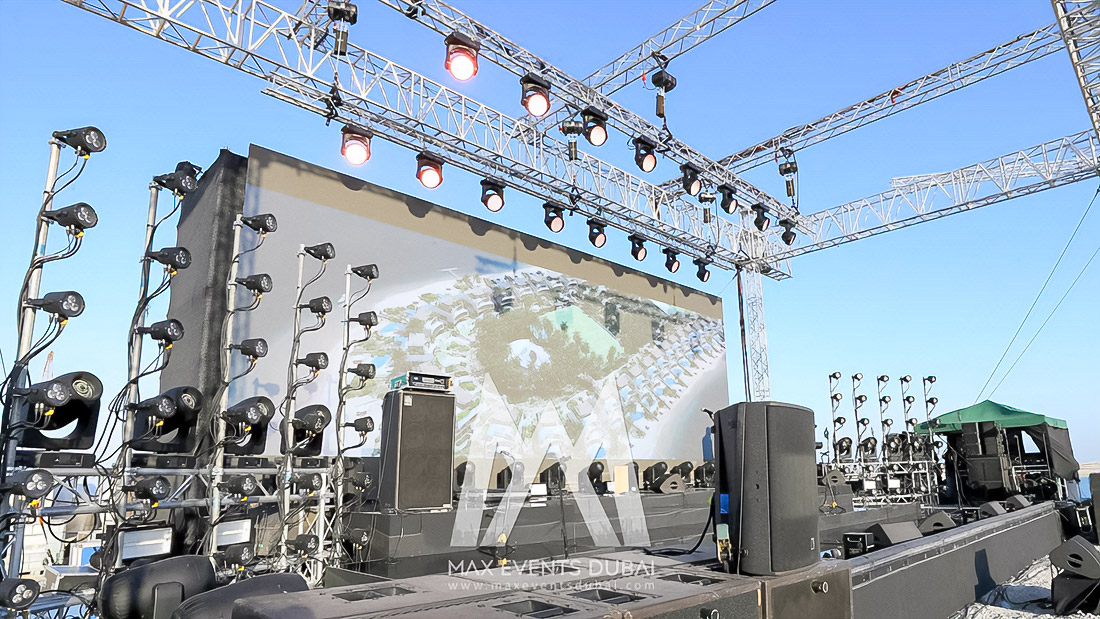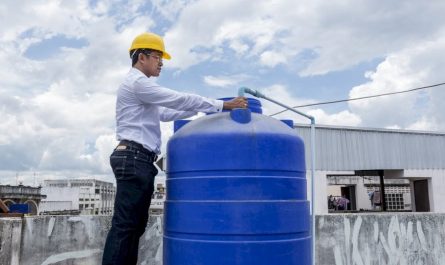Thermal scanning has become a key element in the modern event safety protocol, especially in the context of a global pandemic. This innovative technology provides the capability for instant and contactless measurement of the temperature of participants, quickly identifying potential fever cases. These indicators can signify the presence of an infectious disease. Thermal cameras and infrared thermometers are installed at event entrances, thus creating the first barrier against the transmission of infection. This allows for a quick assessment of participants’ health, which is absolutely necessary in conditions of mass gatherings of people. For successful organization of such events, you can contact an event management company.
The main advantages of thermal scanning lie in its contactlessness, speed, and economic efficiency, as it does not require the involvement of medical personnel. However, it is important to note that this solution has its limitations: it does not identify asymptomatic carriers of infections and may be less accurate in conditions of particularly low or high temperatures.
Modern Health Protocols: Comprehensive Safety

The introduction of health protocols has become an integral part of registration systems at large events, ensuring not only safety but also reducing the risk of disease spread. Below are the key elements of these protocols:
- Health questionnaires: Participants are required to fill out questionnaires indicating the presence of disease symptoms, contact, and travel history. This helps identify potential risk cases in advance.
- COVID-19 testing: Many events require the presentation of negative COVID-19 test results, which allows cutting off the possibility of virus transmission through infected participants.
- Vaccination certificates: Checking for the presence of vaccination certificates serves as an additional measure to reduce the risk of infection.
- Mask regime and social distancing: Adherence to mandatory mask-wearing and distancing in crowded places minimizes virus transmission.
These protocols are an integral part of creating a safe environment at events and complying with legal norms. Health protocols in Dubai also include a variety of measures to ensure public safety.
Success Stories: Integration of Systems and Processes

One of the outstanding examples of successful use of thermal scanning and health protocols was the Tokyo 2021 Olympic Games. Organizers implemented comprehensive measures, including thermal scanning at every access point, mandatory COVID-19 testing for everyone, including staff, and contact tracing applications.
Another striking example is international exhibitions such as CES in Las Vegas. Here, thermal cameras and QR codes were used for registration, which allowed minimizing physical contacts between people. These events vividly demonstrated how modern technologies can be effectively integrated into registration processes to ensure safety. If you want to learn more about safety measures at such events, visit the event safety guidelines.
Weighing the Pros and Cons: A Pragmatic Approach

The advantages provided by thermal scanning and health protocols are obvious: increased overall safety, significant reduction in the risk of infection spread, and improved conditions for participants. This gives organizers the ability to manage flows of people, avoid overloads, and quickly eliminate potential threats.
However, there are also some limitations. Thermal scanning sometimes gives false readings, requiring additional verification methods. Health protocols may be viewed as an invasion of privacy, raising questions about privacy. Also, compliance with all safety measures requires additional costs and preparation time.
Tips for Organizers: Efficiency and Accuracy
- Invest in reliable thermal scanning technologies, ensuring their regular updating and technical maintenance.
- Develop comprehensive health protocols, taking into account the specifics of the particular event and contingent.
- Conduct staff training for effective use of new technologies and tools.
- Ensure transparency of all introduced measures and the procedure for informing participants about safety.
- Use contactless solutions such as electronic tickets and registration to minimize physical interaction.
Ethics and Law: Needs of Modern Society
The implementation of thermal scanning and health protocols is associated with certain ethical and legal issues that organizers need to consider.
- Data confidentiality: Protection of participants’ personal data must be at a high level to avoid possible breaches and information leaks.
- Participant consent: Participants must be fully informed about the collected data and give their consent to its use.
- Compliance with legislation: It is necessary to strictly comply with all legal norms and standards in the field of health and safety.
With the right approach to integrating modern technologies and adhering to moral and ethical norms, levels of trust and comfort of participants significantly increase, ensuring a safe and convenient environment for events.



